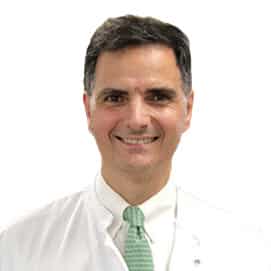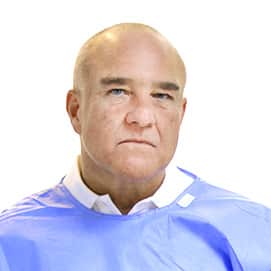If a tumor reappears in the same mammary gland as before, or in surrounding tissues (thorax, borderline lymph nodes), this is called local or locoregional recurrence. We are talking in this case about advanced breast cancer; however, the goal of therapy is curative, which means that the patient can be cured for an extended period of time. It is considered: the smaller the recurrence and the longer the time interval before the first appearance of breast cancer, the better the chances of recovery.
In order to determine the scale of recurrence and exclude distant metastases, the patient is again examined by various methods. This also includes re-determining the biology of the tumor, as cell properties, such as hormone receptor status or HER2 status, can change. In conclusion, the following treatments are currently recommended:
- Women after breast-conserving surgery are advised to have a mastectomy, since repeated breast-conserving surgery significantly increases the risk of recurrence. In certain cases, breast-conserving surgery may still be considered – for example, in the case where the patient has not received radiation therapy in the past. In any case, a decision will be made on a case-by-case basis to perform (repeat) radiotherapy.
- In women who have had a mastectomy, the recurrence is also in most cases removed by surgery. Sometimes it is necessary to remove a part of the pectoral muscle or, in case of a significant lesion, finally close the wound in the chest area with a plastic flap. In conclusion, the patients receive, if possible, radiation of the chest or lymph nodes.
- In the case of complete excision of the axillary region (axillary) during the first treatment for breast cancer, the lymph nodes are not operated on again. The exception is again palpation enlarged lymph nodes in the axillary region. However, if only the sentinel lymph nodes were removed, a second operation to remove the sentinel lymph nodes may be considered.
- With a hormone-receptor-positive disease, antihormonal therapy is connected in each case.
- It is decided individually whether chemotherapy or therapy directed against the HER2 receptor is also needed. Current research data indicate that patients with adverse risk factors may benefit from further chemotherapy.
Head of the Clinic of Oncology, Hematology and Palliative Medicine
Head of the Clinic for General, Visceral, Thoracic and Endocrine Surgery
Head of the Clinic for Radiation Therapy and Radiological Oncology
Video
Request appointment
Useful links
Photo gallery












